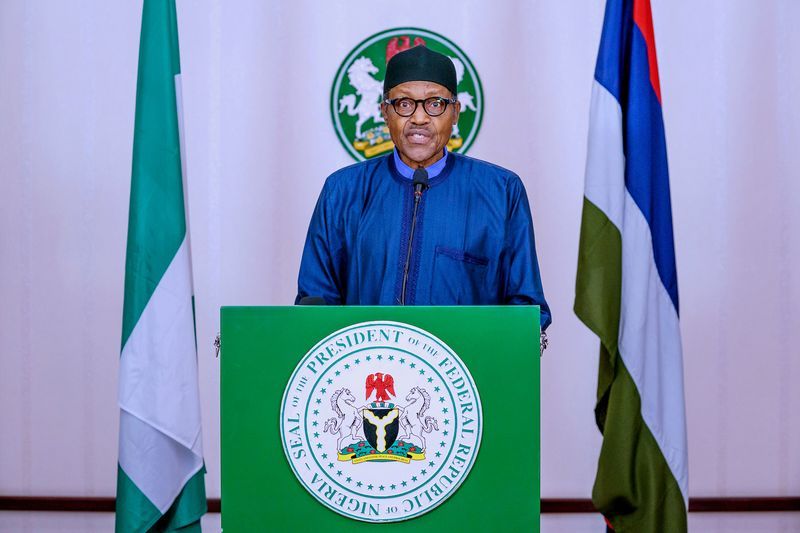President Muhammadu Buhari has extended lockdowns in Lagos, Abuja and Ogun states for an additional 14 days to combat the new coronavirus.
Buhari in an address to the nation on Monday night said it was crucial to extend the lockdown due to an “alarming” increase in positive cases in a number of states.
The president had a fortnight ago ordered the initial 14-day lockdowns in the three areas began on March 30.
The president while ordering the extension highlighted the grave consequences of opening up Nigeria for normal life too soo, saying it is a matter of ‘life and death.’
He said, “With this in mind and having carefully considered the briefings and Report from the Presidential Task Force and the various options offered, it has become necessary to extend the current restriction of movement in Lagos and Ogun States as well as the FCT for another 14 days effective from 11:59 pm on Monday, 13th of April, 2020. I am therefore once again asking you all to work with Government in this fight.”
“This is not a joke. It is a matter of life and death. Mosques in Makkah and Madina have been closed. The Pope celebrated Mass on an empty St. Peter’s Square. The famous Notre Dame cathedral in Paris held Easter Mass with less than 10 people. India, Italy and France are in complete lockdown. Other countries are in the process of following suit. We cannot be lax.
“The previously issued guidelines on exempted services shall remain. This is a difficult decision to take, but I am convinced that this is the right decision. The evidence is clear. The repercussions of any premature end to the lockdown action are unimaginable. We must not lose the gains achieved thus far. We must not allow a rapid increase in community transmission. We must endure a little longer.”
Buhari advised that Nigerians should promptly notify relevant authorities if they or loved ones develop any symptoms. According to him, all health care professionals would redouble their efforts to identify all suspected cases, bring them into care and prevent transmission to others.
“Today, the cessation of movement, physical distancing measures and the prohibition of mass gatherings remain the most efficient and effective way of reducing the transmission of the coronavirus,” he said.
“By sustaining these measures, combined with extensive testing and contact tracing, we can take control and limit the spread of the disease.”
There are currently 323 confirmed cases of the virus in Nigeria, nearly three-quarters of them in Lagos and the capital territory of Abuja, and 10 people have died from the virus.
Nigeria, with 200 million people, is Africa’s most populous nation. Some 20 million reside in the megacity of Lagos alone.
Health experts have raised the alarm over the impact of any spread in the virus, warning that the country’s unprepared and underfunded healthcare system could quickly become overwhelmed.
But the economic impact on the millions of Nigerians who rely on daily wages, particularly in Lagos, has hit residents hard. The shutdown exempts only critical workers, including those selling food, water and medicine, but has left many without money to buy food and other essentials.
Videos have circulated on social media showing armed robberies, fires and small riots in some Lagos neighbourhoods.
Earlier on Monday, the police said they would deploy additional units to Lagos and Ogun to tackle unrest and crime stemming directly from the lockdowns.
The Lagos state government has been distributing food packages to 200,000 of the state’s most vulnerable households, and plans to double the aid.
Buhari did not address the unrest specifically, other than saying he urged the security forces to “maintain utmost vigilance”, but he acknowledged the difficulties many people would facing by sticking to the rules.
“We made this very difficult decision knowing fully well it will severely disrupt your livelihoods and bring undue hardship to you, your loved ones and your communities,” he said. “However, such sacrifices are needed to limit the spread of COVID-19 in our country.”
He said the federal government, which has also been distributing cash and food, would add 1 million households to the programme, which is currently targeting 2.6 million.
He also said the government would develop a comprehensive policy to bring its economy through the crisis, and set up a task force to minimise the impact of lockdowns on farmers and the agricultural sector.














